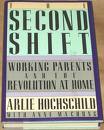
I’ve been so sad about Ed Baker’s death that my usual goofball humor emotional survival technique has been mostly muted. But today I found a web page in which Ed is remembered by someone at the school in Beijing where he taught last summer, Communication University of China. It is primarily a rendering in both English and Chinese of this Penn Law announcement. I ran it through the automated Google translator, which was somewhat inept, to put it mildly. Here’s what happened:
*************
December 13
Penn Professor C. Edwin Baker passed away
“The media, market and democracy,” an author of the book, Penn Law Faculty, Professor C. Edwin Baker on December 8 when the accident died in a train, the old man returned to class this past summer before our last class.
freedom of speech in commemoration of the United States’s most famous scholar, Professor C. Edwin Baker
Alex Kreit: “He was as fine a teacher as he was a scholar.”
Alex Kreit: “He was as good as his knowledge of the teachers”
First Amendment Center: “Ed was a modern-day gadfly, albeit one who wore wide-rimmed glasses that allowed him to see things that many of the rest of us could not.”
The First Amendment Center: “Despite the wide-frame with the eye so that he saw many of us do not see things, Ed is still a modern gadfly.”
Legal Theory: “Ed was a significant contributor to fundamental debates in constitutional theory for decades.”
Legal Theory: “Ed number of decades the area of the core constitutional debates, has made tremendous contributions to”
Balkinization: “The finest media law scholar of his generation.”
Balkinization: “He is the best of his time who the media law”
Balkinization (2): “I’ve never seen the influence of the ‘marketplace of ideas’ on the Supreme Court documented or criticized as thoroughly as Baker does it.”
Balkinization (2): “I have never seen who is deeply, “the concept of market theory,” the impact of the Supreme Court’s ruling or criticism, as penetrating as Mr. Baker.”
Feminist Law Professors: “He was brilliant, funny, kind and fiercely invested in building a more just world.”
Feminist Law Professors: “In building a more just world in the process of his remarkable achievements, fun, goodness and vitality.”
Daily Pennsylvanian: “He loved the underdog.”
Daily Pennsylvanian: “He loved living on the lower level people.”
C. Edwin Baker, the Nicholas F. Gallicchio Professor of Law and Communication at the University of Pennsylvania Law School and a leading scholar in the fields of constitutional law, communications law and free speech, died suddenly on Dec. 8 in New York City, where he had lived the past 20 years. He was 62. He collapsed while exercising and could not be revived.
C. Edwin Baker, University of Pennsylvania Law School, Nicholas F. Gallicchio Professor of Law and Communication, excellent constitution, law and freedom of speech communication, Christianity, (2009) December 8 in New York City, that is, that he lived past 20 years, where a sudden death. He only lived for 62 years. Physical exercise, when he came crashing down, has had no resurrection.
Professor Baker was considered one of the country’s foremost authorities on the First Amendment and on mass media policy. Most recently, he focused his work on the economics of the news business, political philosophy, and jurisprudential questions concerning the egalitarian and libertarian bases of constitutional theory.
First Amendment to the Constitution and the mass media policy areas, Baker, Mr. Professor of the United States, one of the most authoritative. Most recently, his research interests focus on journalism, political philosophy and constitutional theory and the basis of equality and liberalism-related legal issues.
“Ed Baker was a brilliant scholar, a dedicated teacher and a wonderful friend,”said Penn Law Dean Michael A. Fitts.”Generations of students and lawyers benefited from his insights, his high expectations and his caring approach to everyone around him. His death is a great loss for the Penn Law community as well as for the larger community of academicians and practitioners focused on free speech, the media and human rights.”
“Ed Baker is a distinguished scholar, a dedicated teacher and mentor,” the University of Pennsylvania Law School Dean Michael A. Fitts said. “There at his side several generations of students and lawyers, are to benefit from his insight, his vision and his concerns. His death is a Pennsylvania law within the community and the wider concern about freedom of expression, media and human rights scholars and practitioners a great loss.”
His work was read and respected by policy makers and students in the United States and internationally. Just this past summer, he taught a course on communication policy, freedom of speech, and freedom of the press at Communication University of China in Beijing. Earlier this year, Professor Baker told a Congressional subcommittee that “huge actual layoffs of journalists as well as threatened closures of towns’ only daily are a major threat to democracy. When people are reading newspapers, corruption goes down.” In January, he wrote an essay calling for a targeted federal tax credit to help newspapers hire more journalists, instead of laying them off. His work was read and respected by policy makers and students in the United States and internationally.
Outside the United States and the United States policy makers and students to read and love his work. Just this past summer, he also traveled to Beijing, China Communication University of China, the Education and by the dissemination of policies, freedom of expression and freedom of the media programs. Earlier this year, when, Baker will give the Congress a special committee member said: “The large-scale dismissals of journalists and closures of towns the only daily newspaper” approach, is a huge threat to democracy. This year in January, he was attacked for a federal tax policy, wrote an article calling for the federal government to help newspapers hire more reporters, rather than fire them.
“It is always a pleasure to read Ed Baker’s work, but it is a pleasure tinged by envy, for I inevitably come away thinking, ‘I wish I were that good a scholar,'”said Seth Kreimer, the Kenneth W. Gemmill Professor at Penn Law.”Some of my colleagues are outstanding lawyers, some are insightful social scientists, and Ed was both. Rather than deploying a single social science paradigm to illuminate a legal problem, he deployed two or three, with the result brilliantly illuminating the discourse of practicing lawyers and judges.”
“Reading Ed Baker’s article is accompanied by a very pleasant but faint jealousy thing, because when I read always think that if I was a great scholar like him, be nice.” In the University of Pennsylvania Law School the work of Kenneth W. Gemmill Professor Seth Kreimer said Mr. “My colleagues have distinguished jurists, social scientists are insightful, while at the same time both the two, Mr. Ed Baker. He was not a single social science paradigm to clarify certain legal issues, he used two or even three. Naturally, the outcome is, he brilliantly expounded the practitioners practicing lawyers and judges all.”
Professor Baker was scheduled to participate in the upcoming fifth international human rights workshop on the subject of”Private Power and Human Rights”in Israel, and he was working on his fifth book at the time of his death. His first book, Human Liberty and Freedom of Speech, published by Oxford University Press in 1989, defends interpreting First Amendment freedom of speech as concerned primarily with individual freedom and autonomy rather than the more traditional understanding of it being about a marketplace of ideas. Advertising and a Democratic Press (Princeton University Press, 1994) became a leading critique of the impact of advertising on media’s non-advertising content and Media, Markets, and Democracy (Cambridge University Press, 2002) explores why the free market predictably fails to provide the media that consumers want or citizens need. His most recent book, Media Concentration and Democracy: Why Ownership Matters (Cambridge, 2007), evaluates economic and democratic reason to oppose media concentration.
Professor Baker plans to attend the forthcoming 15th session held in Israel, “private rights and human rights,” international human rights workshops in the occasion of his death, he is working on his fifth of this monograph. His first masterpiece, that was published in 1989 by Oxford University’s “human freedom and freedom of expression”, from the most important personal freedom and autonomy to defend the First Amendment protection of freedom of speech, rather than from the more traditional concept of market theory to understand. “Advertising and the media democracy,” (Princeton University Press published in 1994), on the advertisement on the media impact of non-advertising content is given the most important comments. “Media, markets and democracy” (University of Cambridge, published in 2002) to explore the free market can not be provided for the consumer or the market they want the media causes. His latest book, that is, “Media Concentration and Democracy: Why Ownership is essential” (Cambridge, 2007), the assessment against the media focus on the economic and democratic grounds.
Professor Baker joined Penn Law in 1981 and focused his teaching on constitutional law, mass media law, the First Amendment, and jurisprudence. Since 2007, he has held a joint appointment in the Annenberg School for Communication at Penn. During his career he served as a staff attorney for the American Civil Liberties Union and he held teaching positions at several universities prior to joining Penn Law. Professor Baker joined Penn Law in 1981 and focused his teaching on constitutional law, mass media law, the First Amendment, and jurisprudence. Since 2007, he has held a joint appointment in the Annenberg School for Communication at Penn. During his career he served as a staff attorney for the American Civil Liberties Union and he held teaching positions at several universities prior to joining Penn Law.
Professor Baker joined the University of Pennsylvania Law School in 1981 and is committed to constitutional law, media law, First Amendment and the constitutional jurisprudence teaching. Since 2007, he concurrently served as the College of Communication from the University of Pennsylvania Annenberg teaching. In his career, he was the American Civil Liberties Union, Legal Services Commissioner. Prior to joining Penn, he has worked at several universities teaching.
“There was no scholar so committed, passionate, disciplined and wise in thinking through the relationship between the media and the political system,”said Monroe Price, the director of the Center for Global Communication Studies at Penn’s Annenberg School.”He was a quiet and persistent missionary for his own very exacting and compelling view of the First Amendment and international norms of free speech.”
“The relationship between the media and political system of thought, nobody is more determined than Professor Baker, more earnest, more rigorous, more wisdom,” Penn Annenberg School of Communication Research Center, director of global communications, said Monroe Price. “He was a calm and tenacious missionaries, dedicated to the dissemination of his own refined and compelling point of view the First Amendment of the Constitution, as well as international norms of freedom of expression.”
Professor Baker received his law degree from Yale University and his bachelor’s degree from Stanford University. He had been a fellow at Harvard on three occasions, most recently as a Radcliff Fellow in 2006.
Professor Baker graduated from Stanford University and a law degree at Yale University. He has three period of time, most recently in 2006 with Radcliffe in his capacity as a researcher at Harvard University’s visit to school.
A memorial service is being planned for Jan. 31, 2010, in New York City. Contributions in his memory should be made to the ACLU, the Juvenile Diabetes Foundation, Oxfam, or any other charity honoring his commitment to human rights and free speech.
January 31, 2010, in New York City, organized the memorial service. In his contribution on the ceremony should be donated to the American Civil Liberties Union, the Juvenile Diabetes Foundation, the Oxford Committee for Famine Relief, and any appreciation for their contribution of human rights and freedom of expression and other charitable organizations.
Professor Baker is survived by his sister, Nancy Baker, of El Granada, Calif., who is on the faculty of Fielding Graduate University; her spouse, Cathy Hauer; and seven first cousins with whom he was very close. He was predeceased by his parents, Falcon O. Baker, Jr. and Ernestine Magagna Baker.
Professor Baker left behind by the death of his sister Nancy Baker, she lived in California, El Granada, is the Fielding Graduate School teachers, her spouse Cathy Hauer; and seven with his first generation of close cousins. His parents Falcon O. Baker, and Ernestine Magagna Baker has already begun to him forever.
**********************
“Naturally, the outcome is, he brilliantly expounded the practitioners practicing lawyers and judges all” indeed. I know Ed had a terrific time in China, and he will be missed by the friends he made there.
–Ann Bartow








 There have been a number of articles in the New York Times this week highlighting diversity challenges in law schools, and the lack of legal representation among low and middle income individuals who cannot afford it.
There have been a number of articles in the New York Times this week highlighting diversity challenges in law schools, and the lack of legal representation among low and middle income individuals who cannot afford it.














